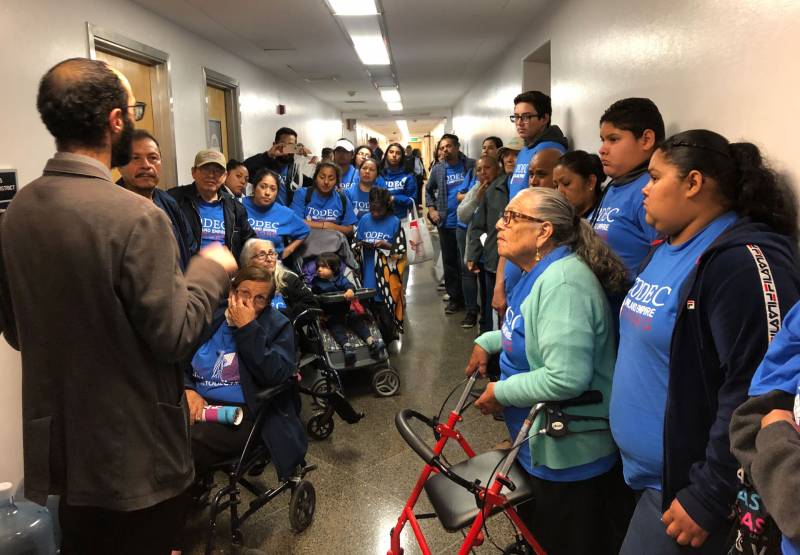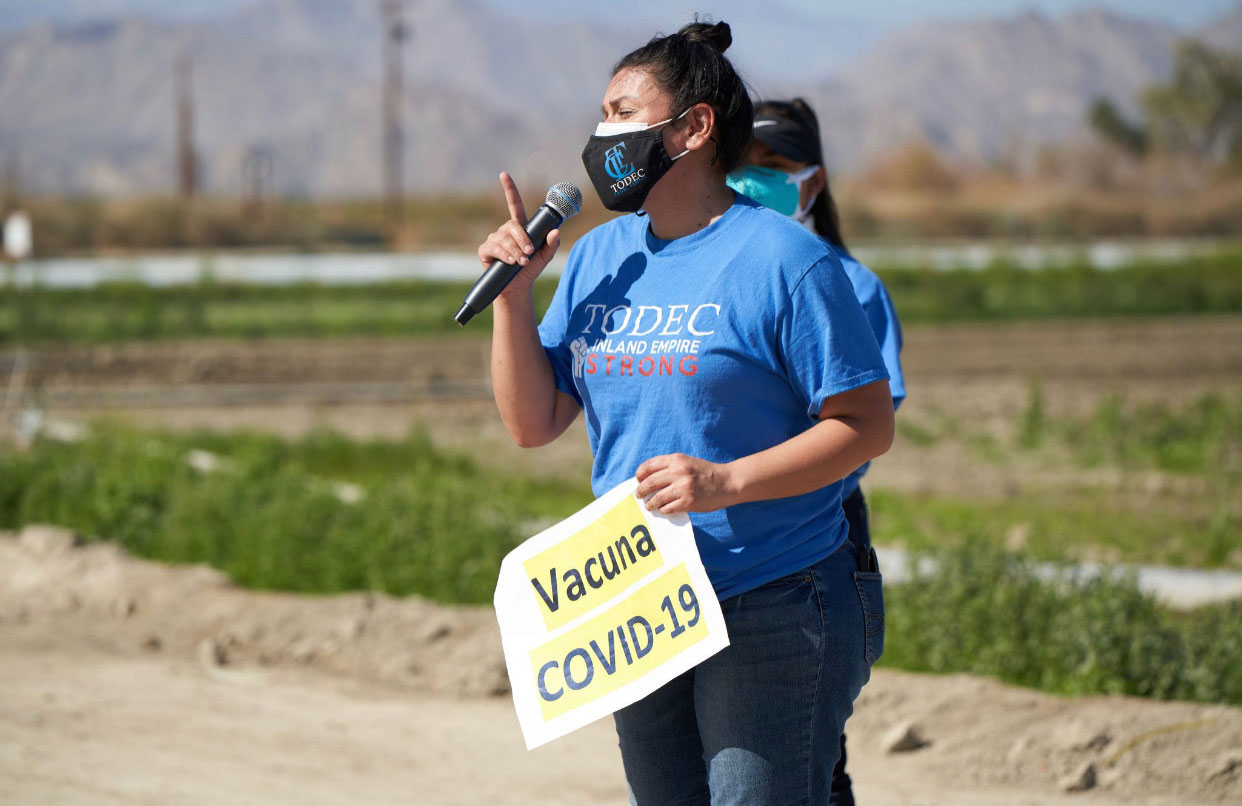Gallegos, who was born in the U.S. to farmworker immigrant parents, said this likely win is personal for her. In recent years, her undocumented uncle died from cancer, she said, after he delayed seeking medical care because he was uninsured. During the pandemic, farmworkers she knows died from COVID-19 while several others became ill with the virus.
“We honor their lives by continuing the struggle so we don’t see no more lives taken away from our communities,” said Gallegos, her voice breaking.
Currently, low-income undocumented immigrants who are 26 and older are eligible for limited Medi-Cal, which only covers health care emergencies or prenatal care if they are pregnant. Undocumented immigrants are excluded from the Affordable Care Act, and cannot purchase coverage through Covered California, the state’s ACA health exchange.
If they are not insured by an employer or able to purchase a private plan, they must generally rely on county health programs, which vary greatly throughout the state.
Last year, Gov. Newsom proposed offering full-scope Medi-Cal to undocumented seniors age 65 and older. But the plan didn’t go through, as the state projected a severe economic downturn and tax losses in the billions of dollars.
But the financial picture for California is starkly different this year, with the state logging an eye-popping budget surplus of $76 billion. In addition, the pandemic highlighted how “interconnected” public health really is, with all of us having to think about whether people around us wore masks, stood far enough apart, or were vaccinated, said Dar, with the California Immigrant Policy Center.
“And so to give health care access to this community would mean a healthier and stronger state for all Californians,” said Dar. “Increased productivity, better health outcomes, better public health.”
Some opponents have argued that funds to provide health coverage to undocumented people would be better spent on other needs, such as helping struggling U.S. citizens afford their own health insurance.
About two in three Californians support the idea of providing health coverage to undocumented immigrants, according to a recent survey by the Public Policy Institute of California. But many Republicans oppose it, with nearly eight in 10 saying that they are not in favor.
This year, Illinois became the first state to extend health insurance to undocumented seniors age 65 and older.
Former farmworker Laura hopes she will gain access to health coverage — and low-cost medical care — in California, where she has lived since the late 1980s, most recently in Riverside county.
“It would help me a lot to go to the doctor and get my eyes checked out,” Laura said. “It would be the best.”


